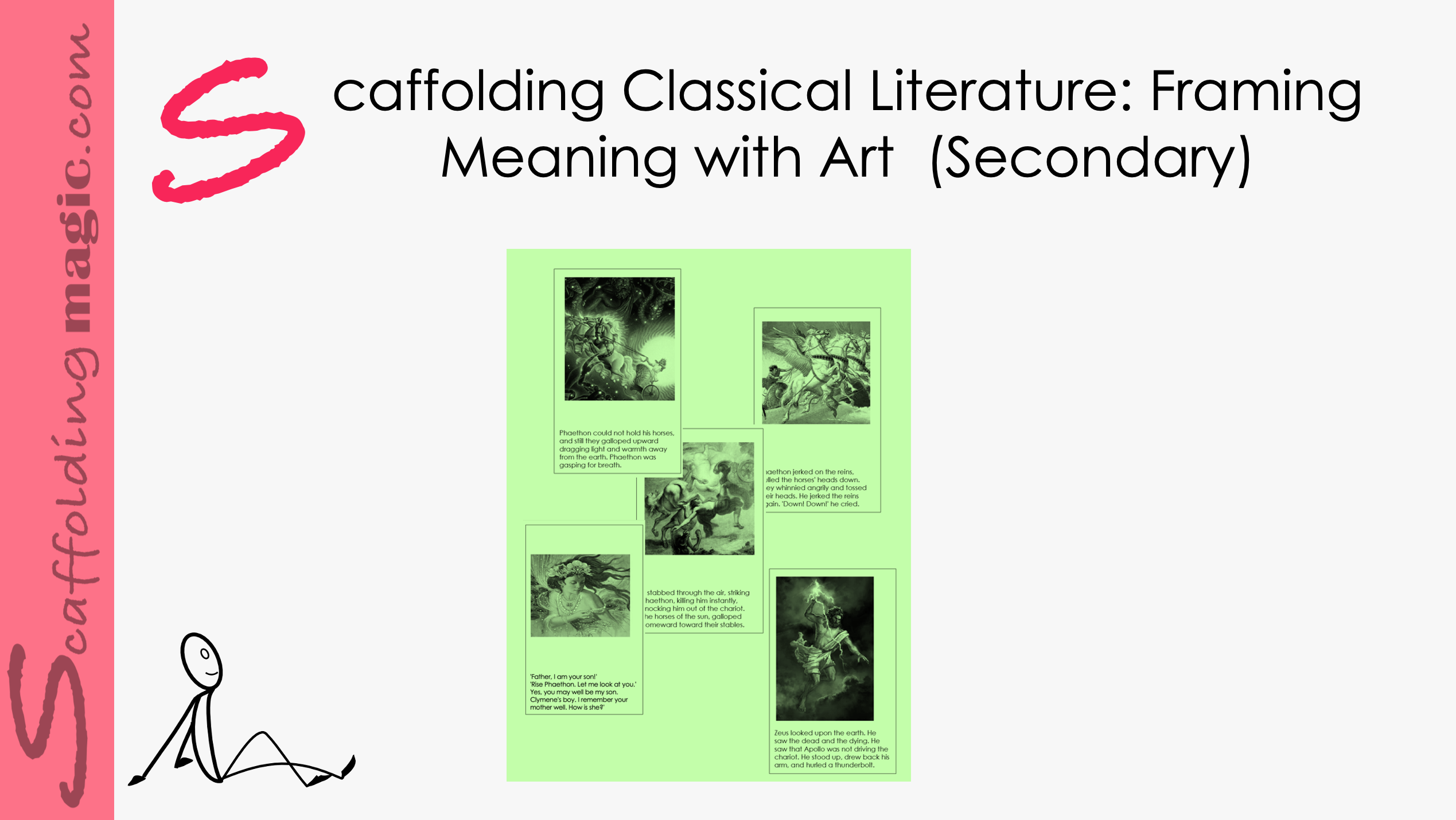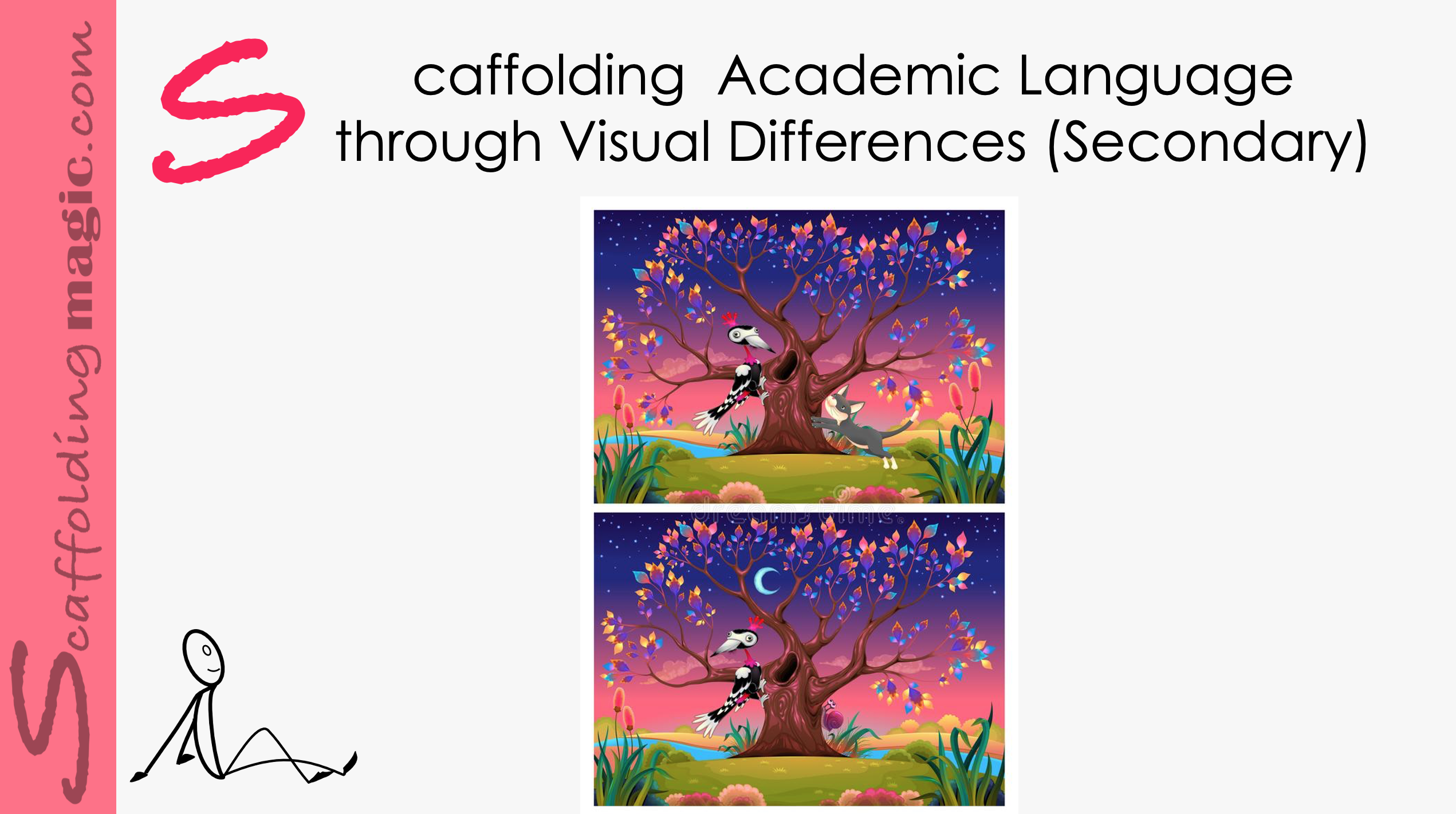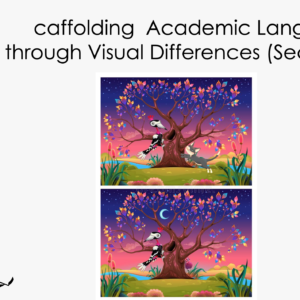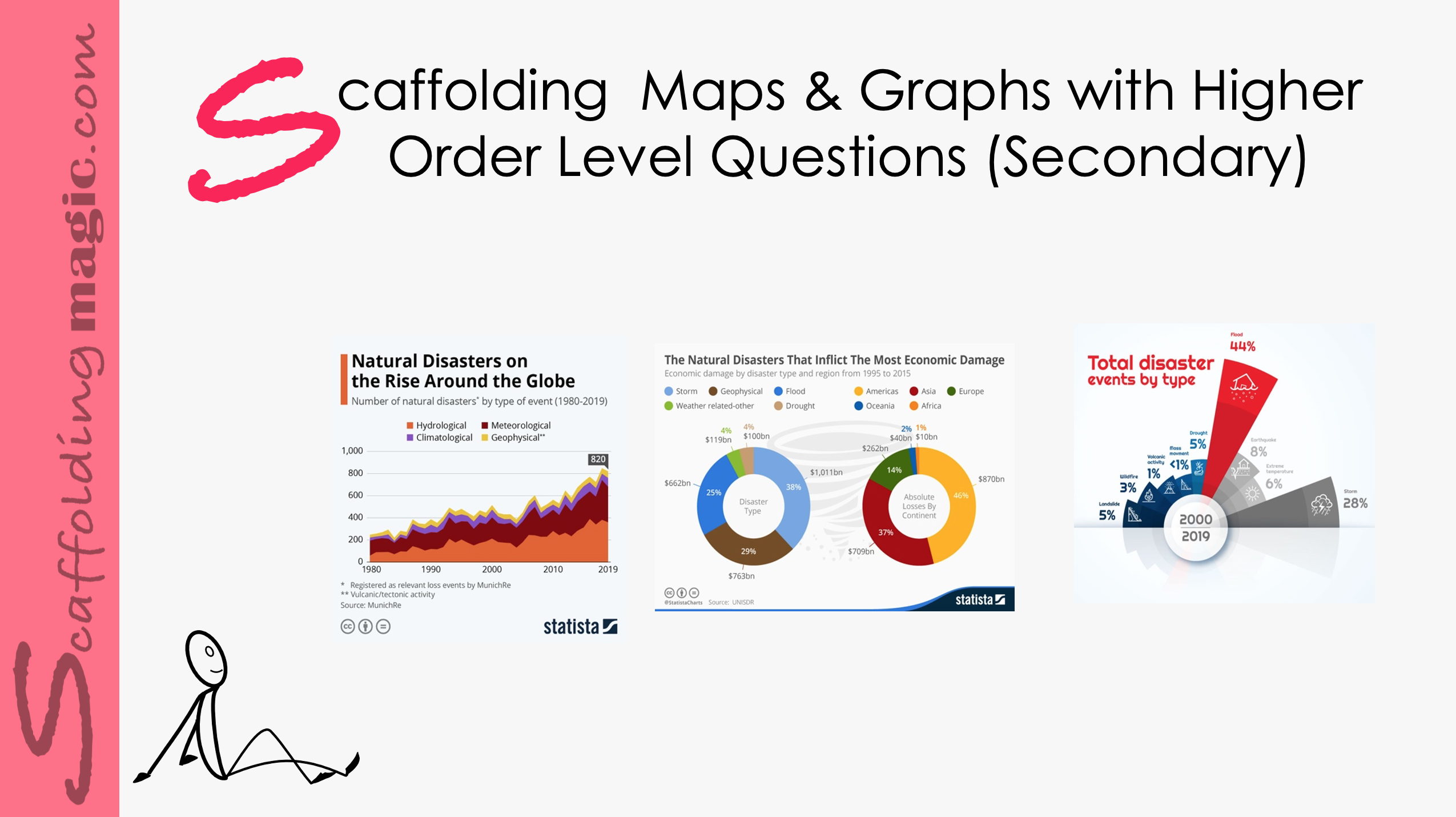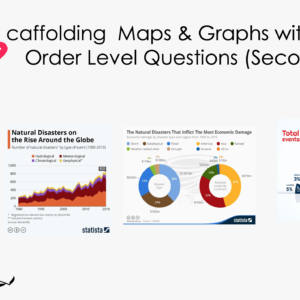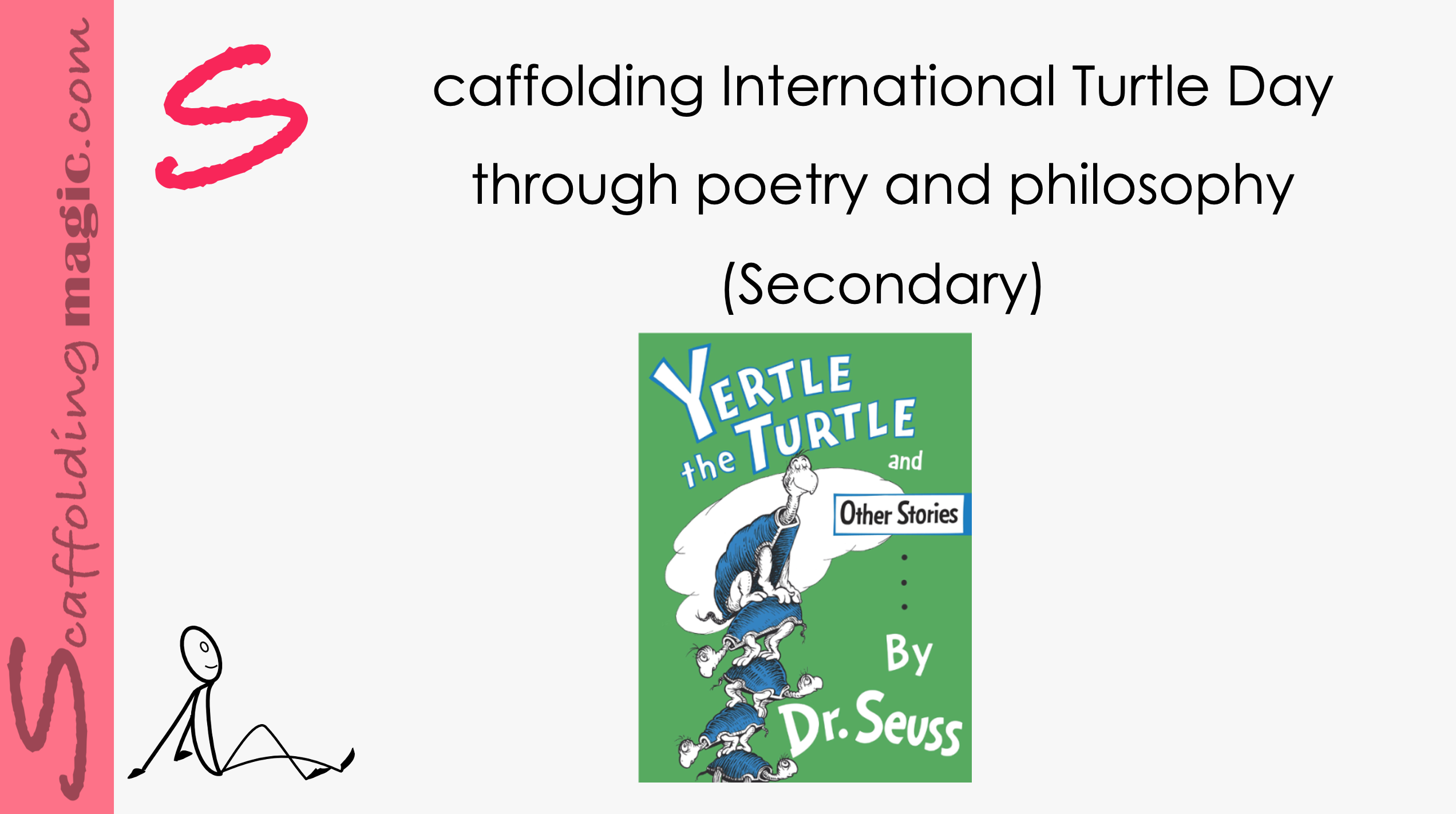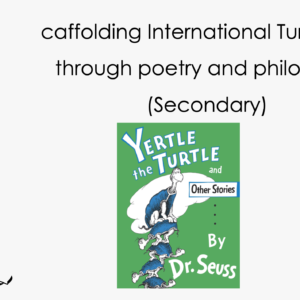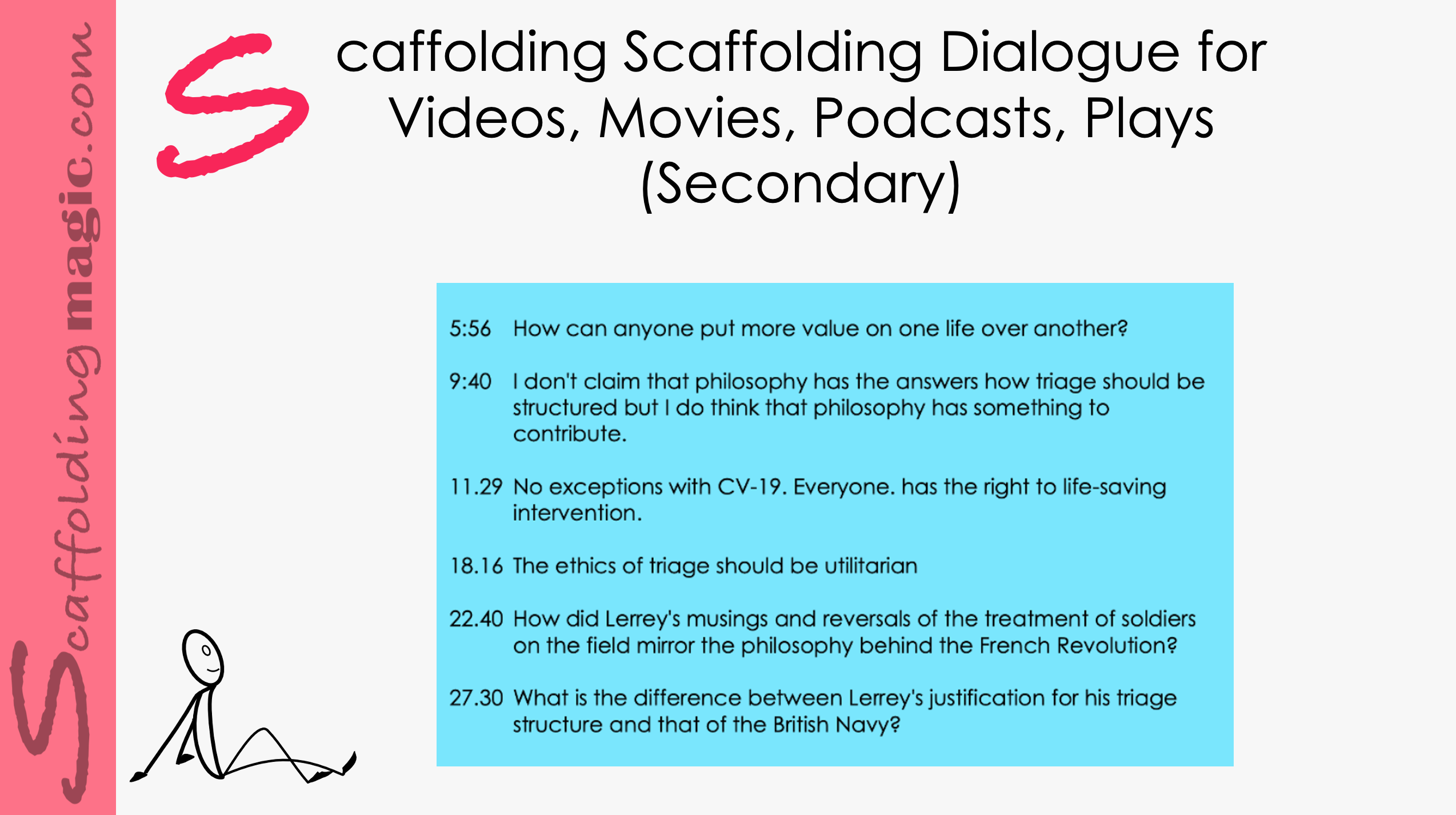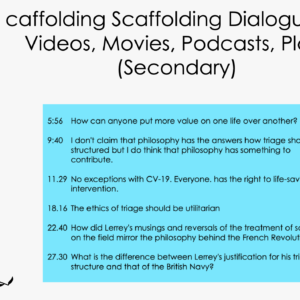Students are given artistic renditions of the story by documented artists with captions underneath in authentic language. They put the images in order according to what makes sense to them with regard to images and language. In the best practices of the Ethic of Excellence, in groups, they then exchange their artwork and analyse each other’s renditions.
Scaffolding Activity for Classic Literature 2: Framing Meaning with Art
$5.00
Students are given artistic renditions of the story by documented artists with captions underneath in authentic language. They put the images in order according to what makes sense to them with regard to images and language. In the best practices of the Ethic of Excellence, in groups, they then exchange their artwork and analyse each other’s renditions.
Related products
-
Secondary ScaffoldsQuick View
Scaffolding Academic Language by Identifying Visual Differences (Secondary)
$5.00 Add to cartRated 0 out of 5 -
Secondary ScaffoldsQuick View
Scaffolding Maps & Graphs with Higher-Order Level Questions (Secondary)
$20.00 Add to cartRated 0 out of 5 - a philosopher…he had a moral message in all of his stories
- political activist…not all of his books were written with a political message
- a philosopher…he had a moral message in all of his stories
- political activist…not all of his books were written with a political message
-
Secondary ScaffoldsQuick View
Scaffolding International Turtle Day through Poetry and Philosophy (Secondary)
$5.00 Add to cartRated 0 out of 5 -
Secondary ScaffoldsQuick View
Scaffolding Dialogue for Videos, Movies, Podcasts, Plays (Secondary)
$5.00 Add to cartRated 0 out of 5
Scaffolding Academic Language by Identifying Visual Differences (Secondary)
Studies show that memorising academic language is ineffective in the long-term*. Students may be able to pass an exam they are studying for, but without having used the terms to analyse, compare, categorise, and defend their own ideas, most students will forget the meanings of the words as quickly as they learned them.
The solution is easy. We create opportunities for our students to use these words, terms and phrases while analysing, comparing, categorising, and defending their own ideas.
Studies show that memorising academic language is ineffective in the long-term*. Students may be able to pass an exam they are studying for, but without having used the terms to analyse, compare, categorise, and defend their own ideas, most students will forget the meanings of the words as quickly as they learned them.
The solution is easy. We create opportunities for our students to use these words, terms and phrases while analysing, comparing, categorising, and defending their own ideas.
Scaffolding Maps & Graphs with Higher-Order Level Questions (Secondary)
Higher-order level questions – those that elicit deeper thinking – help students to stretch their thinking and engage their curiosity, their reasoning ability, their creativity, and independence. These questions encourage students to open their minds, they offer opportunities to produce original thinking. A well-structured question sparks perspectives that might not have at first occurred to us; they encourage us to look at the issue from different perspectives. Higher-order level questions inspire fresh and sometimes even startling insights and ideas, they open roads for wider perspectives of the issue, and enable teachers and students to work together in constructing understanding. If we use effective questioning skills in the educational environment, we help our students to be more effective thinkers now and in the future.*
Higher-order level questions – those that elicit deeper thinking – help students to stretch their thinking and engage their curiosity, their reasoning ability, their creativity, and independence. These questions encourage students to open their minds, they offer opportunities to produce original thinking. A well-structured question sparks perspectives that might not have at first occurred to us; they encourage us to look at the issue from different perspectives. Higher-order level questions inspire fresh and sometimes even startling insights and ideas, they open roads for wider perspectives of the issue, and enable teachers and students to work together in constructing understanding. If we use effective questioning skills in the educational environment, we help our students to be more effective thinkers now and in the future.*
Scaffolding International Turtle Day through Poetry and Philosophy (Secondary)
A children’s book about turtles is philosophical? Oh yes it is! Theodor Seuss Geisel (Dr. Seuss), was not just a writer of children`s books, but a profound philosopher, a poet, a political advocate (sometimes controversial), and a promoter of critical thinking on all levels.
A children’s book about turtles is philosophical? Oh yes it is! Theodor Seuss Geisel (Dr. Seuss), was not just a writer of children`s books, but a profound philosopher, a poet, a political advocate (sometimes controversial), and a promoter of critical thinking on all levels.
Scaffolding Dialogue for Videos, Movies, Podcasts, Plays (Secondary)
The ability to switch perspective is essential to learning in every domain. For those who follow Deepak Chopra and his deeply rooted scientific conclusions regarding the human condition, the more effort we make in seeing a situation through the perspective of someone we are offended by or disagree with, the more we heal on a cellular level – both emotionally and physically. Students are going to read chunks of dialogue taken from various tracks.
The ability to switch perspective is essential to learning in every domain. For those who follow Deepak Chopra and his deeply rooted scientific conclusions regarding the human condition, the more effort we make in seeing a situation through the perspective of someone we are offended by or disagree with, the more we heal on a cellular level – both emotionally and physically. Students are going to read chunks of dialogue taken from various tracks.

